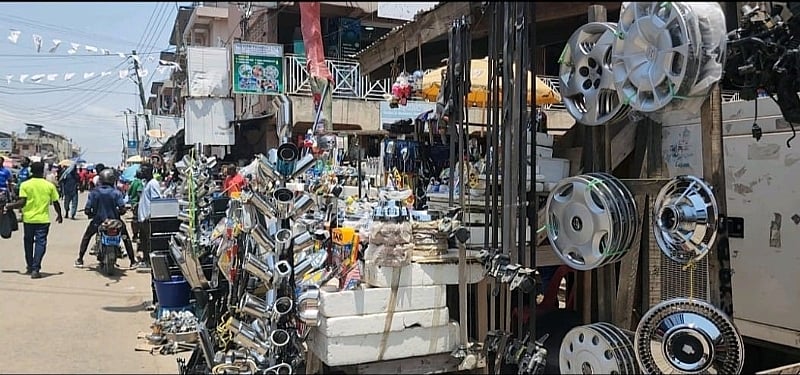The Ghana Union of Traders Association (GUTA) has called on its members to reduce prices on old stock to clear shelves and create room for new imports. The Association says the move will free up capital, ease market costs, and provide much-needed relief to consumers.
The directive follows the expiration of a 60-day grace period for price adjustments, introduced after the cedi’s recent appreciation.
GUTA’s Public Relations Officer, Joseph Paddy, explained that price stability has now persisted for over eight months—well beyond the usual three-to-four-month business cycle—and warned that traders who fail to adjust may lose out.
“This stability has lasted for over eight months now, which is well beyond the usual three-to-four-month business cycle. Typically, when you travel, it takes about a month; shipping your goods takes another month; and clearing can take up to a month as well—so, in all, a three-to-four-month cycle,” he noted.
He cautioned that holding on to old or near-expiry stock at inflated prices could push some traders out of business.
“We believe that if you are still holding old stock, while new stock has already entered the market, you risk losing out. If you don’t position yourself as a businessperson and continue holding onto old prices, you could run out of business because competitors with new products will reduce their prices,” he said.
On May 14, 2025, GUTA and the Association of Ghana Industries (AGI) jointly announced a 60-day window for businesses to adjust prices in line with the cedi’s appreciation. The decision followed a meeting with Trade and Industry Minister, Elizabeth Ofosu-Adjare, after growing public calls for prices to reflect the stronger currency.
Currently, the cedi trades at around GH₵10.40 to the dollar. Despite this, many market prices remain unchanged, largely because older stock was purchased at higher exchange rates.
GUTA President Joseph Obeng has since appealed to government to sustain the currency’s stability, assuring that traders will make downward adjustments as new imports arrive.

